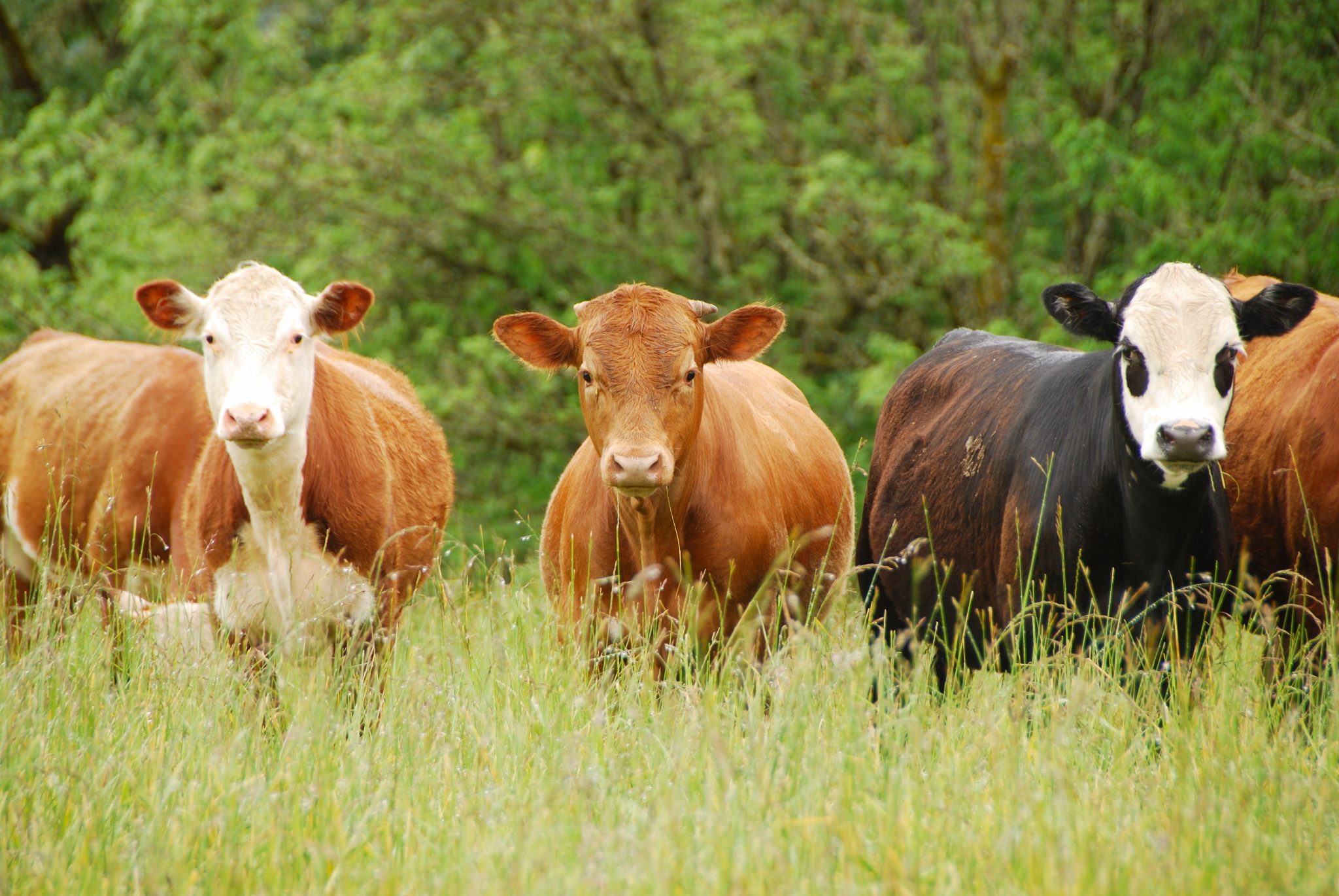Beef

Best practices in livestock and forage production is the subject of ongoing programs conducted by Alabama Extension animal science and forages specialists to benefit forage and livestock farmers and to ensure food safety.
The Animal Science and Forages Extension team focuses on education related to improving on-farm systems management strategies for forage-livestock resources. Our team strives to improve the livelihoods of forage and livestock farmers through direct education on best management practices, communication, and relationship building with stakeholders. This provides benefits to Alabama communities through stewardship of animal, land, and water resources, and improved food security.
Program Summary Highlights
Alabama Forage Focus (2018–2023)
Institutional Lead: 1862 – Auburn University
Project Leader: Leanne Dillard
 Background/Situation/Issue: This program aims to educate stakeholders on sustainable forage management practices. Programs increase the ability of participants to establish, manage, and sustain a viable forage base for their operations.
Background/Situation/Issue: This program aims to educate stakeholders on sustainable forage management practices. Programs increase the ability of participants to establish, manage, and sustain a viable forage base for their operations.
Meetings with Stakeholders: Sixty-five meetings on forage management conducted annually, with a total average reach of 1,809 contacts
Field Days: Three to six field days are held annually at Auburn University research farms, sponsored by Extension in partnership with Alabama Agricultural Experiment Station outlying units. Livestock-forage producers receive demonstrations on management practices in the field, are introduced to current research on forage management systems and results of previous projects, and learn how to implement these practices on their farms.
Field days are held in Alabama at the Wiregrass Research and Extension Center (REC) in Headland, Tennessee Valley REC in Belle Mina, EV Smith REC in Shorter, and at various producer farms throughout the state.
Hands-On Learning: The Alabama Grazing Academy was started in 2018 as a hands-on meeting to teach stakeholders about pasture and hayfield management strategies. Programs are often hosted on private farms or at Auburn University outlying research centers. Up to five workshops are held annually.
Since 2018, 208 farmers have completed the program, reporting a 30 to 60 percent increase in knowledge of precision soil fertility, forage testing strategies and interpreting results, grazing and weed management, and temporary electric fencing. When asked how likely they would be to adopt concepts from the segments, respondents on average said “somewhat probable.” The total economic impact was $2,167 per farm.
Online Education: The Forage Basics online course was released in 2021 as a free, self-paced way for farmers to learn more about forage practices. The course provides a general overview of key forage management concepts in the Southeast United States. Participants watch a series of videos, take interactive quizzes, and receive a certificate of completion at the end.
The course helps reach those who are just getting started with forage management, and is a valuable tool for new and beginning farmers, those who want a refresher on certain concepts, and youth interested in agriculture. Since release of the course, there have been 638 enrollments and 212 completions.
Evaluation Techniques: Pre- and post-program survey data; one-on-one farmer impact interviews
Value Statement: The Alabama Forage Focus program improves local communities through targeted educational efforts on stewardship of soil, plant, and water resources.
Program Resources
- Forage Basics: www.aces.edu/blog/topics/farming/forage-basics-online-course/
- Website: www.alabamaforages.com
- Social media: www.facebook.com/alabamaforages
- Team e-newsletter: www.aces.edu/blog/topics/beef/animal-science-and-forage-update/
Sustainable Livestock Production Systems (2016–2023)
Institutional Lead: 1862 – Auburn University
Project Leader: Kim Mullenix
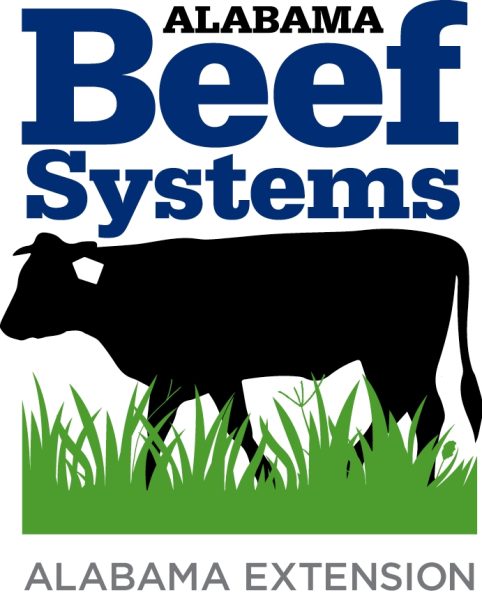 Background/Situation/Issue: The objective of the Sustainable Livestock Production Systems program is to provide livestock producers (beef, dairy, and equine) with a comprehensive guide to best management practices to enhance on-farm sustainability.
Background/Situation/Issue: The objective of the Sustainable Livestock Production Systems program is to provide livestock producers (beef, dairy, and equine) with a comprehensive guide to best management practices to enhance on-farm sustainability.
Meetings with Stakeholders: Average of ninety meetings per year
Educational Resources: Both online and print resources are available on the subject of sustainable livestock management practices. These include online coursework, digital publications, website content updates and additions, webinars, videos, and social media resources. They are for use by internal and external stakeholders to address on-farm livestock-forage management questions.
On average, 11,780 contacts are reached annually through website visits, online course participation, video views, and social media posts. Livestock programs, educational resources, and events are highlighted on the website and linked to social media for promotion. Interaction on our Facebook page (likes/followers) has increased by 26 percent since the onset of the COVID-19 pandemic in 2020.
Programs for New and Beginning Farmers: An introductory-level educational program is available for stakeholders interested in learning more about the basics of beef cattle management systems in Alabama. The Beef Systems short course is designed to (1) introduce concepts related to best management practices in beef operations to producers, and (2) create awareness among producers about educational services offered through Alabama Extension.
Eight topics are taught over four days (two topics per meeting at 45 minutes each). Topics include forages; nutrition; herd health; reproduction; animal identification, genetics, and records; environmental stewardship; economics; and meat science.
A post-program survey is conducted to evaluate (1) potential changes in knowledge regarding beef cattle management practices and (2) awareness of Extension resources.
Since the program began in fall 2019, 305 participants have enrolled in the course across the state. Most have been part-time farmers (52 percent). A 4-year average of data collected shows that these participants represented 55,634 acres of land and 29,318 head of cattle.
Overall, producers have been highly satisfied with the program, designating it an overall rating of 4.7 out of 5 (Likert-type scale) across program topics. Seventy-five percent indicated plans to integrate one or more of the management practices into their operation within the next 12 months. Among these practices were (1) to improve forage management (soil/forage testing and grazing management such as rotational stocking), (2) to establish a calving season, (3) to adopt better recordkeeping, and (4) to practice proper identification of livestock.
A notable outcome is that 48 percent of participants reported that this was their first time attending an Extension program, demonstrating the reach of this program to new and beginning clientele. Total estimated economic impact of the program to date is $728,528 (based on estimated savings reported per operation).
Self-Paced Online Learning: An extensive online course on the basics of beef cattle management (Beef Basics) was released in January 2016. There have been 2,191 students enrolled in the course since then and a 23 percent completion rate. Enrollment is voluntary, and those who complete the course receive a certificate of completion for 8 hours of training credit in beef management.
Evaluation Techniques: Pre- and post-program survey data; one-on-one farmer impact interviews
Value Statement: Improved knowledge and on-farm management strategies increase sustainability of livestock systems in the state and contribute to a safe and secure food supply chain for consumers.
Program Resources
- Beef Basics: www.aces.edu/blog/topics/beef/beef-basics-online-course/
- Website: www.alabamabeefsystems.com
- Social media: www.facebook.com/alabamabeefsystems
Beef Cattle Performance to Enhance Profitability (BCIA) (2016–2023)
Institutional Lead: 1862 – Auburn University
Project Leader: Michelle Elmore
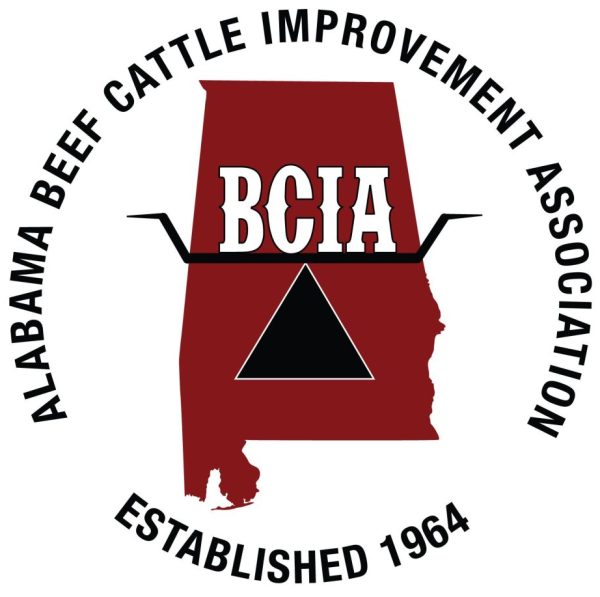 Background/Situation/Issue: The Alabama beef cattle industry currently represents $501 million in cash receipts, with an inventory of 1.25 million head, and ranks third in leading commodities within the state. The 2023 National Beef Quality Audit reported that improved application of animal identification and recordkeeping can have a positive effect across all aspects of an operation and its end products. Expansion of recordkeeping and increased application of genetic selection tools and recommended management practices would advance operational efficiency and enhance profitability.
Background/Situation/Issue: The Alabama beef cattle industry currently represents $501 million in cash receipts, with an inventory of 1.25 million head, and ranks third in leading commodities within the state. The 2023 National Beef Quality Audit reported that improved application of animal identification and recordkeeping can have a positive effect across all aspects of an operation and its end products. Expansion of recordkeeping and increased application of genetic selection tools and recommended management practices would advance operational efficiency and enhance profitability.
The Alabama Beef Cattle Improvement Association (BCIA) serves as an educational program within Alabama Extension to provide this education. Alabama BCIA’s mission is to promote, educate, and facilitate the use of performance data, recordkeeping, and marketing opportunities.
Activities with Stakeholders: Average of forty-eight activities and 2,778 participants per year
Stakeholder Reach: Educational opportunities in the areas of production recordkeeping, genetic tools, and program events are promoted through the Alabama BCIA website, Facebook page, email blasts, and mailings, for an average of 15,012 contacts per year.
AL BCIA Commercial Recordkeeping Program: The Alabama BCIA Commercial Recordkeeping Program utilizes a specialized internet-based system of hands-on recordkeeping applications. Since 2017, a total of 21,823 calves have been recorded, with an average adjusted weaning weight of 580 pounds, and an average of forty-five herds enrolled per year.
In 2023, forty-five beef herds were enrolled representing animal records. The average adjusted weaning weight was 586 pounds for 2,951 calves weighed between 160 and 250 days of age. The actual average weaning weight was 593 pounds from 3,286 calves, which is higher than previous national and regional reported values.
In 2014, the specialized recordkeeping system utilized transitioned from software-based, centralized processing to an internet-based system to allow for hands-on use. After 5 years, in 2019, participating beef cattle producers were surveyed to assess the application of recordkeeping to operational management. An online survey consisting of fourteen multiple-choice questions was developed to evaluate the application of this new system and its hands-on use. The Qualtrics XM web-based survey tool was used to deliver and evaluate results. The response rate was 45 percent (fifty-six beef producers).
The value of performance records was rated extremely valuable by 72 percent, and hands-on access was rated very valuable by 92 percent. A majority of respondents indicated that they accessed the system weekly (40 percent), monthly (20 percent), or daily (8 percent). The most common devices used were a combination of computer and smartphone (36 percent).
The most active recordkeeping areas were calving records (22 percent), weaning data (20 percent), and cows culled based on performance (18 percent). Expansion was planned for areas such as yearling data for replacement heifers (23 percent) and collecting mature cow weights at calf weaning (21 percent). Overall, 88 percent of responding cattle producers indicated that the internet-based system was definitely meeting their needs.
Seedstock Evaluation and Marketing: Alabama BCIA offers programs for seedstock cattle producers for the evaluation and marketing of breeding animals. Alabama BCIA sponsors the North Alabama Bull Evaluation, a feed performance bull evaluation located in Cullman, and the Alabama BCIA Fall Round Up Bull Sale, an annual bull consignment sale in Uniontown to market breeding bulls. Within the last 7 years, 658 breeding bulls have been marketed, impacting 575 beef cattle producers, for a total economic impact of $2,170,700.
AL BCIA North Alabama Bull Evaluation: The North Alabama Bull Evaluation offers an opportunity for stakeholders to participate in post-weaning development of bulls for marketing. Consignors enroll bulls in the program and are provided performance evaluations of those bulls.
A survey of Alabama BCIA North Alabama Bull Evaluation participants from 2019 to 2021 was conducted. Results reflected the following benefits: (1) 60 percent rated bull evaluations very valuable, (2) 17 percent indicated evaluation provides an opportunity to evaluate herd genetics to performance standards, (3) 17 percent indicated evaluation provides an opportunity to market herd genetics, (4) 80 percent experienced an increase in knowledge of performance measurements in yearling weights and ratios and 79 percent increased their knowledge in foot scores, and (5) 46 percent reported increased knowledge of genetic selection tools in evaluation of structural correctness and soundness, 31 percent in expected progeny differences (EPDs), and 23 percent in selection indices. Overall, 86 percent of respondents stated that their participation was beneficial and planned to participate in the future.
Value Statement: This project supports education of Alabama beef producers to advance the application of best management practices, recordkeeping, and genetic selection tools to improve operational efficiency and profitability. This in turn benefits the economy of Alabama and the production of sale and wholesale beef.
Evaluation Techniques: Marketing program reports, web-based surveys, and in-person survey data collection through pre- and post-program surveys
Program Resources
- Website: www.albcia.com
- Social media: www.facebook.com/alabamabcia
Opportunities for Value-Added Livestock Marketing
Institutional Lead: 1862 – Auburn University
Project Leader: Michelle Elmore
Background/Situation/Issue: The Alabama cattle industry ranks third in leading state agricultural commodities, with cattle produced in every county for a total inventory of 1.25 million. Based on USDA APHIS NAHMS data, a low percentage of cattle producers in the eastern United States apply best management practices, such as a defined calving season, breeding soundness exams, animal identification, recordkeeping, and health documentation. The eastern region trends lower than both national and other regional values.
Education and guidance is needed for beef producers to increase their knowledge, application, and expertise in best management practices and value-added marketing options for feeder cattle and breeding animals. The objective of this program is to increase the knowledge and skills of commercial and seedstock beef cattle producers to make sound genetic selection decisions to enhance herd profitability and marketing.
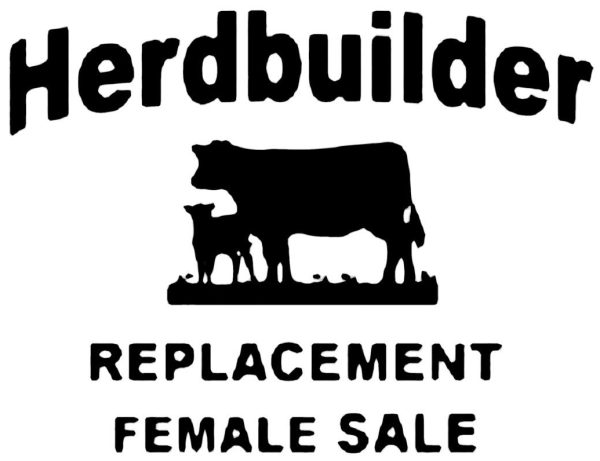 Herdbuilder Replacement Female Sale (1998–2023): The Herdbuilder Replacement Female Sale is a marketing program conducted by Alabama Extension’s animal science team and the Alabama Beef Cattle Improvement Association. The sale has two primary goals: (1) to provide high-quality bred replacement heifers to beef cattle producers, and (2) to add value to commercial replacement heifers to enhance profitability.
Herdbuilder Replacement Female Sale (1998–2023): The Herdbuilder Replacement Female Sale is a marketing program conducted by Alabama Extension’s animal science team and the Alabama Beef Cattle Improvement Association. The sale has two primary goals: (1) to provide high-quality bred replacement heifers to beef cattle producers, and (2) to add value to commercial replacement heifers to enhance profitability.
Bred heifers have been the primary focus of the sale, along with a select group of open heifers. From 1998 to 2023, the Herdbuilder Replacement Female Sale marketed 7,336 heifers, for an economic impact of over $10.4 million. In 2023, 282 marketed bred heifers averaged $2,285 per head, directly impacting fifty-eight beef operations, for a total economic impact of $644,370.
Preparation for the sale includes consignor meetings, education on heifer selection, evaluation, development, and marketing through a series of farm visits and one-on-one interaction with consignors.
Value Statement: Value-added livestock management and marketing practices enhance farm and community-based economic sustainability.
Evaluation Techniques: Pre- and post-program survey data
Program Resources
- Website: www.albcia.com
- Social media: www.facebook.com/alabamabcia
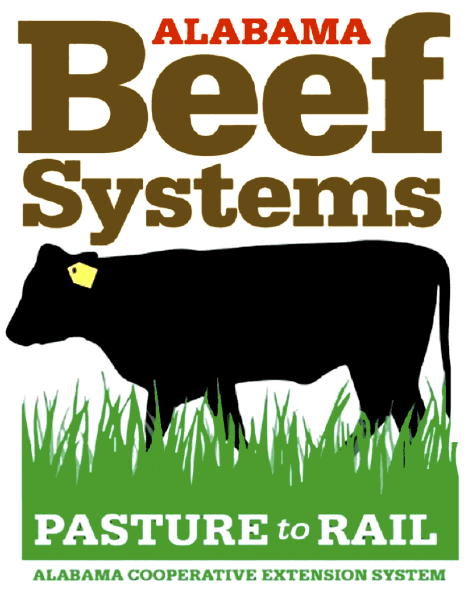 The Alabama Pasture to Rail Program (2016–2023): The Alabama Pasture to Rail program is an opportunity for beef producers to learn more about the retained ownership process through the feed yard and harvest phases of the beef industry. The directive is to provide learning opportunities that do not require an investment from an individual producer in order to finish an entire pen or load of calves.
The Alabama Pasture to Rail Program (2016–2023): The Alabama Pasture to Rail program is an opportunity for beef producers to learn more about the retained ownership process through the feed yard and harvest phases of the beef industry. The directive is to provide learning opportunities that do not require an investment from an individual producer in order to finish an entire pen or load of calves.
The program provides participating beef producers with post-weaning performance data, herd health information, and carcass measurements for their herds. Through this, producers gain knowledge needed to make management decisions regarding herd genetics, health, and nutrition.
The 2022 to 2023 Alabama Pasture to Rail program resulted in an average profit of $163.03 per fed calf, with a range of -$27.38 to $361.94 per fed calf by shipment. Overall carcass performance showed that Alabama-raised fed cattle met or exceeded national values as reported by the 2023 National Beef Quality Audit. Pasture to Rail fed cattle averaged 917 pounds in hot carcass weight, averaged 15.48 square inches in ribeye area, and produced an average yield grade of 2.6, all of which exceeded national values and met the national average value of low Choice quality grade. Many producers have utilized this program in order to make genetic improvements within their herds.
Food Animal Quality Assurance
Institutional Lead: 1862 – Auburn University
Project Leader: Soren Rodning
Background/Situation/Issue: The objective of this program is to provide Beef Quality Assurance and Pork Quality Assurance training and certification for beef and pork producers to facilitate sustainable meat animal production.
Beef Quality Assurance Program: Beef Quality Assurance (BQA) is a nationally coordinated, state-implemented program that provides cattle producers with education and training in good animal husbandry and management. One goal of BQA is to help producers raise cattle under the best possible management and environmental conditions. The training is practical and based on scientific knowledge.
BQA guidelines are also designed to ensure that beef consumers can trust and have confidence in the entire beef industry. This is extremely important considering that farm and ranch families comprise less than 2 percent of the U.S. population, which means many people are not very familiar with food production.
BQA provides a great opportunity for a relatively small number of beef producers to speak with a louder, more unified voice about how and why cattle are raised and managed the way they are. The Alabama Beef Quality Assurance program is offered throughout the state. In 2023, 168 producers received BQA training through Extension.
Pork Quality Assurance Plus Program: Pork Quality Assurance Plus (PQA Plus) is a producer-driven program designed to ensure that U.S. pork products are of the highest quality and safe for consumption, and that animals raised for food are cared for in a way that ensures their well-being.
PQA Plus is designed to identify practices with potential to result in a food safety hazard and minimize this potential risk through producer education of relevant on-farm practices.
On average, the Alabama PQA Plus program maintains certification for over 100 Alabama pork producers. Certification is required for most pork producers to be able to market their hogs.
Value Statement: Food animal quality assurance training demonstrates the beef and pork industries’ commitment to food safety and quality and improves consumer confidence in meat products.
Evaluation Techniques: Pre- and post-program survey data
Program Resources
- Website: www.albcia.com
- Social media: www.facebook.com/alabamabcia
Testimonials
Following are impact highlights from stakeholders and participants in our programming efforts:
- “Extension people made my forage program a success.”
- “Through the Pasture to Rail program in particular, Alabama Extension has been a useful resource for me. When I retained ownership on some calves that I sent through the program, I was able to get carcass data that had been collected on them after slaughter. By working with Extension, I was able to select for bulls that had a better marbling score in hopes of their future progeny grading better on the rail. I have also been a part of the Herdbuilder Replacement Female Sale for several years.”
- “The Alabama Beef Handbook is one of the single best resources I have seen from Extension in years and is a practical guide for my operation.”
- “Overall, this test [North Alabama Bull Evaluation] has historically been managed well and brought buyers and consigners together at a wonderful sale facility in Cullman, Alabama. Thank you for continuing the program and caring about the continued success of the evaluation.”
Alabama Cooperative Extension System Animal Science & Forages Team
New July 2023, Animal Science & Forages Team Impact Report 2023, ANR-3067
Past Reports
The Alabama Cooperative Extension System (Alabama A&M University and Auburn University) is an equal opportunity educator, employer, and provider. If you need a reasonable accommodation or language access services, contact Kim Mullenix at clinemk@aces.edu.

